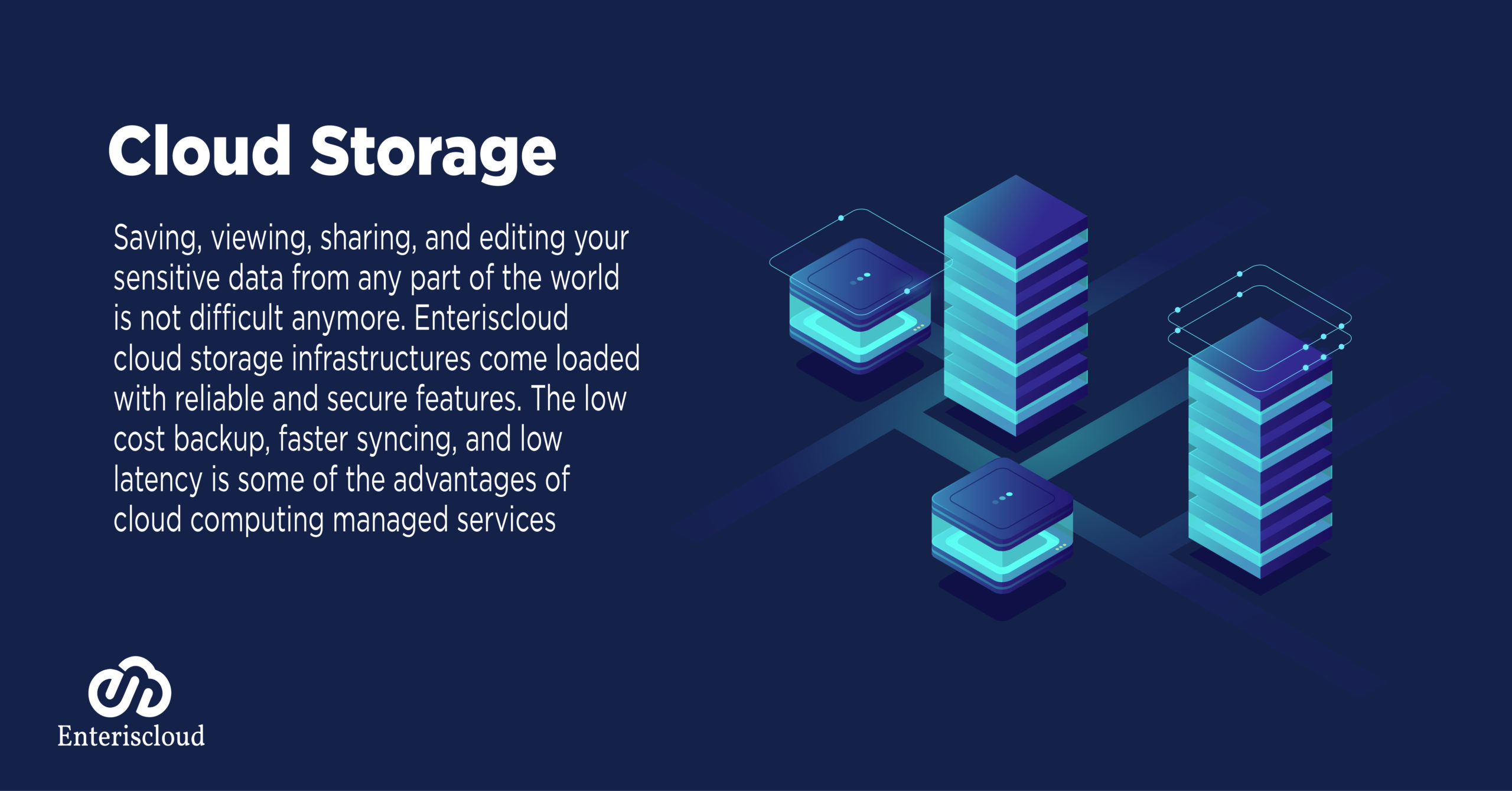Cloud computing technology has shown a substantial impact on several organizations worldwide. The primary reason behind its success is the outstanding services it offers. These services include servers, intelligence, databases, storage, and many more other services. The cloud platform provides these services via the internet that reduces your burden and helps you to stay focused on your business.
In this article, we will understand the term cloud scalability and will try to answer the question of how cloud storage provides scalability. Maintaining your data remotely is no more a challenging task with EnterisCloud! Our heavily secured cloud data storage consulting services & solutions save your files online without interrupting your ongoing tasks and give you the flexibility to view/edit them from anywhere.
Why is Cloud Scalable?
It is one of the key features of cloud technology. Cloud scalability is essentially an ability to change its IT resources to meet business demands. This feature is one of the biggest reasons for businesses’ rapid growth and adoption. Scalable cloud architecture can grow, manage, and act due to an increase in networking, software, and processing demands. However, businesses are looking for a scalable cloud solution these days.
This sort of flexibility in resource management produces wonders for the organizations. It is easier for you to scale your data demands up or down in the cloud environment. However, this critical term, cloud scalability, has become an essential part of the planning process.
How does Cloud Provide Scalability?
Sudden changes in business demands and failing to cope with these changes can cause severe damage to business productivity. Therefore, businesses need to come up with a cloud storage scalability strategy.
These strategies primarily target the storage problem and aim to increase the capacity to accomplish organization requirements. In some situations, it becomes pretty evident for the businesses to implement proper changes in infrastructure, such as at the time of product release.
However, you might face some problems without any warnings, including a rapid launch of a new product in the market to give competition to other products. Such rapid developments and trying to cope with such situations and get out of them successfully falls under cloud scalability.
Why is Cloud Scalable?
If we talk about the physical machines, their resources and overall performance are all pre-defined. That means that there is no chance that we can modify or scale it according to a business wish. The situation is the opposite on the scalable architecture side. Virtualization is the primary reason behind the success of scalable architecture. These virtual machines are much more flexible as they enable you to move workloads to even larger virtual machines in case of storage problems.
These virtual machines can provide scalability by shifting your resources to another server. You can also avail a third-party cloud vendor’s help to achieve rapid scaling. Businesses often take help from these vendors when they find it difficult to tackle the scalability situation cost-effectively by themselves. It is time to save money by utilizing our online data storage consulting services that also promises to deliver an improved user experience. And, yes, it can be your backup storage – retrieving information in a data loss is easier with us!
Let us check scalability in cloud storage examples; suppose some popular website featured your application on its site. The next day, you see thousands of users using your application. According to the above example, here comes a simple question: Is your architecture capable of holding this much traffic and storing such a vast amount of user data. That is the reason and the answer to why the cloud is scalable?
Types of Scalability in Cloud Computing
Here are some different types of scalability that we can use on the cloud platform.
- Vertical Scaling
- Diagonal Scaling
- Horizontal Scaling
Benefits of Scalability in Cloud Computing
- Scalability has helped several businesses, which resulted in great success for them.
- One of the key benefits is no delay in scaling the services. With just a few clicks, different virtual machines can tackle the massive volume of workloads.
- Provide financial help to the organizations by applying the scaling feature. It is highly cost-efficient as compared to other pre-defined and non-flexible infrastructures.
- You will see a better performance by the scalable architecture. This architecture knows the tactics to handle the rapid increase and decrease in traffic.
- Other than that, you will experience no lag because of infrastructure shortage.
- A scalable cloud mainly thinks about the capacity problem and acts according to it. The scalable cloud holds enough capacity to store and tackle the data requirements related to future applications.
- Another benefit is easy access to robust data and software tools irrespective of the business level (small or large).
Final Verdict
Scalability must indeed be one of the topmost priorities of businesses while planning their architecture. This scalability feature will enhance their overall experience. This scaling cloud services bring several benefits, from cost-saving to flexibility. However, your cloud model will determine how your business will achieve scalability. Check more tech oriented articles at our site.





